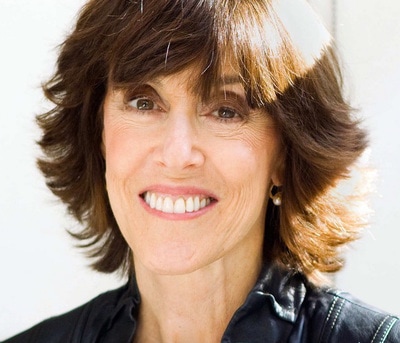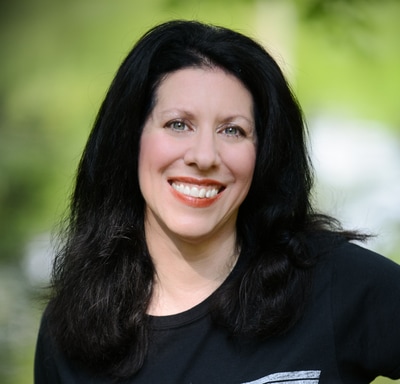|
To date, in addition to reading Heartburn as well as the scripts for Lucky Guy and When Harry Met Sally, I have read four of Nora Ephron’s collections of articles, including those from Esquire and Cosmopolitan, as well as more recent personal essays and blogposts, many of which are featured in the anthology, The Most of Nora Ephron. The more I read, the more I wish I had known her—or, at the very least, met her.
I believe in the late Donald Murray’s theory that all writing is autobiographical in that “as we read someone else’s story, we read our own.” For example, this past weekend my husband and I went to see a local production of Love, Loss, and What I Wore, the play co-written by Nora and her sister Delia Ephron (Billings folk: go see it!). So many times I was transported into my own reservoir of memories, recalling a particular outfit or article of clothing that somehow defined me or captured a moment in time, be it my first Duran Duran concert jersey or the shoes I wore for my wedding. The point is, when my husband and I left, we wound up telling each other our own stories in addition to recalling the stories of the play. As I continue to read Nora’s work (I feel weird calling her by her first name, as if we’re casual acquaintances, but referring to her by her last name seems too academic, “Ms. Ephron” seems too out of reach, and repeatedly combining her first and last name seems too tiring), I keep reflecting not only what I’ve learned about her life, but my own. I try to draw parallels where there are none. In the way she wanted to be Dorothy Parker, I find myself wanting to be her. Sort of. Nevertheless, here are five things you may not have known about Nora or me, in no particular order. 1. Before she graduated from Wellesley College, Nora Ephron was an intern for the White House during the Kennedy Administration. She gave herself the distinction of being “the only intern Kennedy didn’t make a pass at.” Even for all we know about JFK’s philandering ways, he still remains something of a folklore hero in American history. Even if she was no more than a punctuation mark in that lore, I still find it a remarkable detail of her life. I, on the other hand, was a Girl Friday (does anyone still use that term?) in the Human Resources office at UMass Dartmouth for my work study job, where no one made a pass at me, either. I learned quite a bit from that position, including that contrary to its name, most Human Resources departments are neither resourceful nor human. The paperwork one had to fill out for—well, anything—required a set of cognitive and motor skills all of its own. Also, secretaries are the eyes and ears of the university. The best part of my job was when I had to deliver paperwork to the various university departments and getting to know the secretarial staff in each. Whenever an issue came up in my student life, before I reached out to department chairpersons or deans, I talked to the secretaries first and got way farther, faster. 2. Nora was married to Washington Post reporter Carl Bernstein, first made famous for uncovering Watergate (the presidential scandal that has spawned an atrocious trend of attaching “-gate” at the end of every political or personal scandal since), and then infamous when she fictionalized his adultery and the end of their marriage in her novel Heartburn. I met Carl Bernstein in 1997 when he was a guest speaker at UMass Dartmouth. I remember two things: asking a question (I don’t remember what I asked, but it prompted a news channel to interview me), and attempting to ask a second question and him saying that someone else should have a chance. That sounds more off-putting than it actually was, and he was perfectly cordial when I was introduced to him after the event. Better yet, I wasn't that idiot who asked him who Deep Throat was (this was when the secret was still intact, for the most part)—someone else willingly stepped in. Also, I hadn’t yet read Heartburn. 3. Both Nora and I attended colleges in Massachusetts, although both the institutions and the time periods couldn’t be more different. Nora had attended Wellesley College in the early sixties, when the women’s movement hadn’t really quite happened yet. In the commencement address she delivered in 1996, she tells a story about a dean who had encouraged her to take a year off to get married and have children following graduation—the exact opposite of her intentions. She later discovered that this same dean had told a student with ambitions of being a wife and mother to take a year off and work first. "And so I saw that what Wellesley wanted was for us to avoid the extremes,” she said. What fascinated me more was the contrast to the account of her experience when she wrote about her reunion in 1972. The latter seemed much more critical, as if Wellesley had somehow missed the point of what it was they were supposed to do. Or was it the students that had missed the point? I had the luxury of attending a university in a post-women’s movement world (also, the school was co-ed). No one at UMass Dartmouth cautioned me against extremes, but neither did they steer me toward what fulfilled me intrinsically. And it wasn’t that they didn’t care. More like by then the choices for women were there for the taking. The main concern was to choose one that was most practical. “Work,” was the number one piece of advice I got. “Just get out there and get some experience. It doesn’t really matter in what.” Thing is, I’d worked for five years before I matriculated. In fact, the skills and ethic I’d developed in the workplace helped me excel as a student (to the point that I later made the unpopular argument that 90% of young adults should go into the workplace rather than college straight out of high school). I was 29 years old and ready to do something more than just “get experience” and collect a paycheck. What I really took away from my undergraduate education was this one-sentence-summation of psychology from my professor, Dr. Conboy: “People do what feels good.” It’s the intention behind every character I write now. (Also, Wellesley College has the honor of being voted one of the most beautiful campuses in the country, while UMass Dartmouth has been voted one of the ugliest. I have a soft spot for it, however.) 4. Both Nora and I married former journalists. Her second marriage didn’t last. Her third, however, did. Granted, I’m only six months into mine, but I feel pretty damn good about our chances. 5. Nora had a house in Bridgehampton, on the East End of Long Island. My mom lives in the next town over. And while my mom did run into Alan Alda once (literally, with her shopping cart at the King Kullen, by accident), and ushered Sarah Jessica Parker and Matthew Broderick to their seats at a Bay Street Theater production, she never encountered Nora Ephron. How I wish one of us had. Although I would have been terrified to invite her over for lunch. |
Archives
June 2024
Categories
All
|


 RSS Feed
RSS Feed